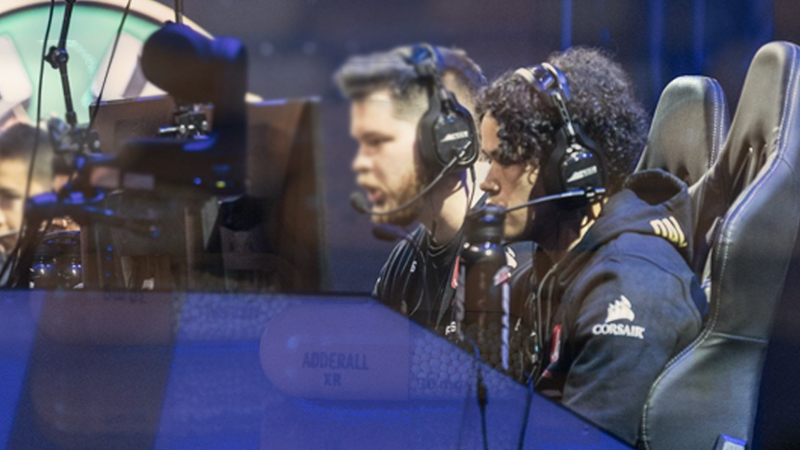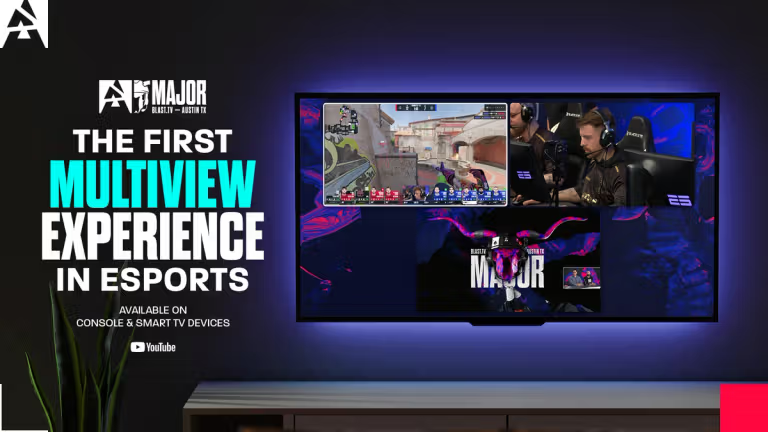
Adderall in Esports – How big is the problem and can it be fixed?
Last week CDL pro player Huke revealed the extent of his Adderall use. In a 30-minute video, the competitive player came up publicly with the way in which he utilized the drug. It included use in some pretty major events for the game.
However, the news didn’t come as a big surprise to many. For a while, Adderall esports use has been something largely known about. The extent of Aderall and similar amphetamine based substance abuse has never been entirely public.
How far does the problem of esports Adderall abuse actually go, and why do we keep revisiting this topic?

Adderall in Esports – Why is it a Problem
Adderall in esports is considered a performance-enhancing drug. While typically prescribed to deal with ADHD, it is widely used recreationally for fun and also as an aid to help concentration and technical skill. Students use it when writing essays or studying, and esports players use it to increase their performance. Even our own editor recall to using it recreationally during DreamHack over a decade ago just to stay awake for the event. He also recalls esports players using the same “batch” during the event.
Just how much effect the drug has on your performance is debatable. Players do still need to have great skill with the game that they’re playing. It isn’t a magic pill. However, when competing at the top of the game’s skill level, Adderall esports use pretty clearly helps players get that extra edge. Most of the usage however is pretty hidden in plain sight, with only anecdotal evidence and the occasional player slipping up about its usage.
Compared with traditional sports, PEDs seem to be being used with a weird frequency in esports, so just how far does the problem go?
Adderall Esports Use, Huke’s Video and CoD pros responses
Something that’s spurned a re-uptake in discussion of Adderall in esports is Huke. Huke’s video admitted that the player used Adderall in official Call of Duty matches. Specifically, he used the drug during his Championship win in 2020. It’s clear he’s far from the only person on the team using the drug either.
On top of Huke’s admission, a number of other current Call of Duty players have came forward in response. Both Austin ‘SlasheR’ Liddicoat, Doug “Censor” Martin and Patrick “ACHES” Price among others, came out calling for the League to take action and tackle this issue.
The overall picture is an entire league that is using performance-enhancing drugs for esports. The Call of Duty League is yet to officially respond. However, at this point it is looking like the use of the drug is more of an epidemic.
How widespread is Aderall use in esports?
Adderall use in esports would appear to be really quite widespread. Very few games have actually survived untouched by it. Pros in the vast majority of titles have spoken out about their Adderall uses. This stretches across a lot of games. However, Huke’s video is one of the bigger cases of a major player admitting to it. A good number of Overwatch pros have spoken out about their Adderall use in the past. Former Envy player Timo “Taimou” Kettunen has spoken on several occasions about how widespread the drug is in the OWL. However , the former commissioner of the League dismissed the possibility that Adderall was even a performance-enhancing drug.
Some leagues have implemented some rudimentary testing. However, it is far from widespread. The problem extends out to games like Fortnite even too. Far from being confined to just the top-level pros, it seems even fairly minor streamers are utilizing Adderall to help their performance out.
It is impossible to know just how widespread the problem is since few players openly talk about it. However, those that do come forward about their use tend to tell a similar story. Usually, at least half of the pro players in their immediate circle they know to also use it. That could just be the tip of the iceberg. Essentially, it seems like a lot of esports have a huge problem with the drug.
Former CoD pro turned content creator for OptiC, Nick “MaNiaC” Kershner shed some light on the issue:
What’s being done about Adderall Esports use?
With Adderall esports usage clearly a widespread problem, what exactly is being done about it?
Some sports have instituted mandatory testing, but this is far from perfect. CSGO is doing some testing, in order to try and keep their highest leagues free from drug use. Other competitions have similarly instituted checks. However, the cost of doing so makes it prohibitive for some games and some smaller tournaments. Even where drug testing is administered, there is one pretty big flaw to that system.
Pros are hinting at an uptick in usage during the COVID online era, as testing has become increasingly difficult for many tournament organizers. Furthermore, Adderall is a prescription drug, not purely a performance-enhancing drug. Many people have legitimate prescriptions for ADHD and other health problems. So how exactly do you square that with drug tests?
Most leagues and games have opted to give an exception in the case of prescription drugs. This would be simple enough, but getting a legitimate prescription for Adderall is relatively simple. Lots of players who don’t have a legitimate need for the drug could easily get their hands on a prescription. Which makes it nearly impossible to draw the line between actual prescriptions and those given out purely for use in esports.
What can we do about Aderall use in esports in the long run?
Essentially, there doesn’t seem to be an easy answer to the question of Adderall in esports. Organizers of competitive gaming have a bit of a challenge on their hands. It’s clear Adderall is overused in esports, but there isn’t a decent way to test and classify players between legitimate needs for Adderall and not. If organizers continue to ignore the problem entirely, they make situations like what’s happened with Huke more common. More and more results and tournaments are going to be thrown into question by the use of PEDs.
It’s clear some action needs to be taken. But what’s the best way to proceed is a pretty difficult question. A solution involving teams, organizers, and sponsors might be needed. It is a question that esports groups are going to have to take more time to deal with in the future.
The most radical proposal thus far has been to outright ban all of these substances in competitive play, and allow the current players with valid prescriptions stay on board for the duration of their careers. Newly signed players have to be clean entirely to be able to compete, which would mean any up and coming player with a valid prescription will be discriminated against. This “solution” is radical and would solve the Aderall problem, but creates a whole new problem with players being actively discriminated by the leagues.












